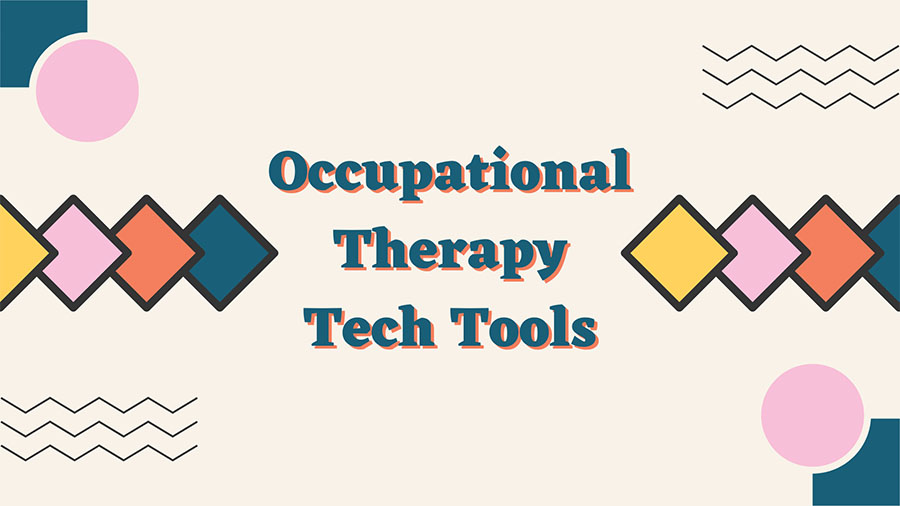
Occupational therapy and technology are inextricably linked. As time moves forward and innovation progresses, OTs will use more and more tech tools as part of their practice. At the same time, more and more OTs will find themselves taking jobs in the health tech industry.
The intent of this article is to introduce you to the broad categories of tech tools that are on the market—and the companies that probably should have OTs working for them. 🙂
Please note, I broke these technologies into several different categories for readability, but many tools have attributes and use cases spanning multiple categories:
- Artificial Intelligence
- Prevention / Early Treatment as a Service
- Early Detection
- Virtual Reality (VR) / Augmented Reality (AR) / Gaming for Rehab
- Brain Computer Interfaces
- Wearables
- Robotic Therapy
- Care Coordination
- Health Data Analytics / Health Records
- Patient Experience
- Adaptive Technology
- Find Fellow OTs in Health Tech
Artificial Intelligence
AI overlaps with several of our other categories, particularly wearables. But, I wanted to highlight its distinct role in helping to analyze large data sets and make the information actionable!
I have divided my list of AI tools for OT into two overarching categories.
Ambient listening for patient safety:
AI scribes:
- Everbility
- Hipposcribe
- Prediction Health
- Splose (Australia, New Zealand, United Kingdom)
- Scripto AI (Australia)
- Automynd
- Ambience
- Abridge
- DeepScribe
- Heidi Health
- Nabla
- Tali AI
For a deeper dive on how AI documentation companies are bringing exciting new developments to patient care, check out our post on OT and documentation.
To see a comparison of AI scribes available for OTs, head to our AI scribe comparison post. And, to learn more about what top OT EMRs and EHRs have to offer in terms of AI capabilities, give our post on the best therapy EMR/EHR systems a read.
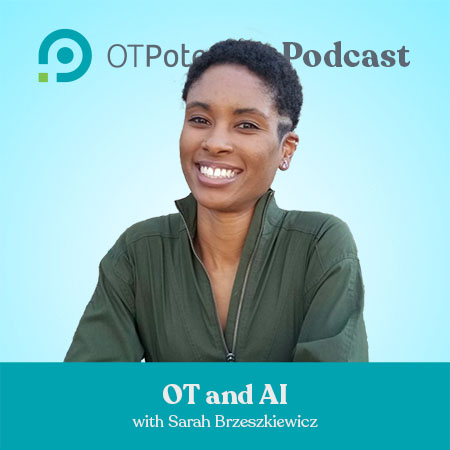
Sarah Brzeszkiewicz, OTR/L, is a clinical advisor at Sensi.Ai. Check out this podcast episode if you are curious about how OT and artificial intelligence will work together in the future.
Prevention / Early Treatment as a Service
Some of the most exciting advances in healthcare focus on preventing health events before they happen. Prevention as a service is a proposed business model that has the potential to shift us away from the status quo of disproportionate health spending AFTER an acute health care event has occurred. I’m excited to add more companies to this list in the future.

We recently interviewed Winnie Tsui, OTL, CHT, MBA, on the OT Potential Podcast. She works at Kaia Health, which is on the frontier of prevention as a service!
Early Detection
If we can’t prevent a disorder, then detecting it early is the next best thing! Many of the wearables listed below also fit into this category. But, I’m specifically spotlighting this technology that helps detect changes in vision:
Virtual Reality (VR) / Augmented Reality (AR) / Gaming for Rehab
These are some of the most well-known rehab tech solutions, as they seek to make individualized therapy more engaging. If you are interested in this particular area, there is an International Society for Virtual Rehabilitation you can join!
- FlintRehab’s FitMi & MusicGlove
- GestureTek’s IREX
- Imago Rehab
- Mightier
- MindMaze
- Neofect Smart Glove
- Neurofenix
- Neuro Rehab VR’s XR Therapy System
- Reactiv
- REAL y-Series
- SaeboVR
- Squegg (watch my video with the OT CEO!)
- XR Health
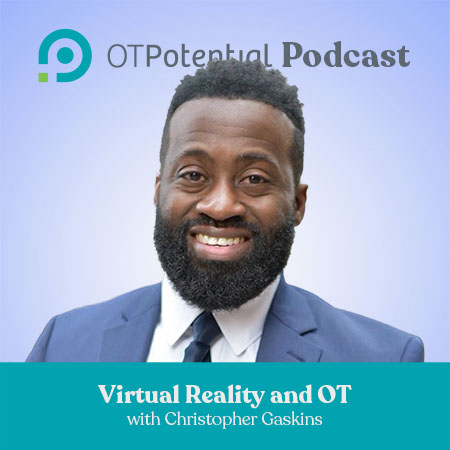
Virtual reality and augmented reality definitely have a place in OT care today and in the future. It was awesome chatting with Christopher Gaskins, MS, OTR/L, CSRS, on the podcast about this exciting topic!
Brain Computer Interfaces
Brain computer interfaces are probably the most mind-bending form of health tech. They entail “a direct communication pathway between the brain’s electrical activity and an external device, most commonly a computer or robotic limb.” The implications for rehab are fascinating. Luckily, this technology is still in the early stages of development, so we have some time to wrap our heads around it!
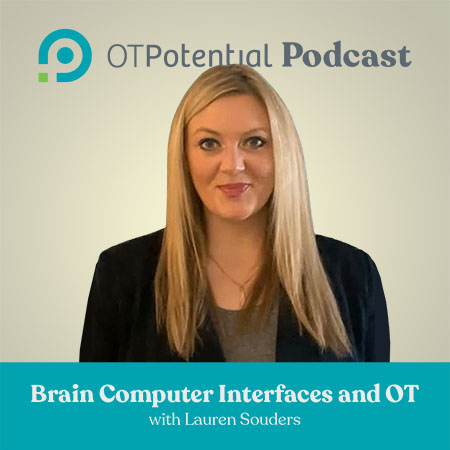
Lauren Souders, MOT, OTR/L, CBIS, CSRS, is on the frontlines of BCI and OT. Check out this podcast episode if you’re interested in the future of brain computer interfaces.
Wearables
Wearables have seen an incredible adoption rate—but for some reason, they seem underutilized in rehab. Below, I’ve listed the popular health trackers as well as those used for specific conditions. I don’t know exactly what this will look like in the future, but I hope to see an increased utilization in rehab for these amazing devices!
Popular wearables:
- Apple Watch
- Fitbit (now part of Google)
- Oura Ring
- Samsung Galaxy Watch
- Whoop
Condition-specific wearables:
- Apollo Neuro (stress relief)
- Envision Glasses (low vision)
- FlintRehab MiGo (post stroke)
- OMRON HeartGuide Wearable Blood Pressure Monitor
- Owlet (baby sleep monitor)
- Spire’s Health Tags (chronic respiratory disease)
Robotic Therapy
I wrote an article about robotic therapy in 2018, and by 2022 the devices I featured had all been taken off the market. I think active assist robotic therapy still has a place in the future of rehab, but it may not be a standalone category. Here are some examples of robotic therapy options that are still on the market:
- Hocoma’s Armeo Power & Armeo Spring
- Motus Nova
- Tyromotion Diego
Care Coordination
Care coordination may not sound like a tech category, but given how fragmented our healthcare system can be, technology platforms are filling in the gaps! Here is one to check out:
Health Data Analytics / Health Records
Again, this may not be top of mind when you think of tech tools—but analyzing big data is going to play a major role in the future of rehab. And, this is a great career pathway for OTs. Notable players in this area include:
Patient Experience
Again, this may not seem like a tech category. But, it ABSOLUTELY is. I’m sure everyone reading this can think about a subpar patient experience they have personally had. At best, these involve hours wasted in a waiting room. Amazon in particular is interested in how technology can improve the patient experience and recently moved to acquire:
Adaptive Technology
Last but not least are adaptive technologies, which OTs are more well-known for working with! You can learn more about adaptive and assistive technology in this blog post. Here are a couple of companies I’ve been following:
- Nuheara
- WHILL’s personal electric vehicles
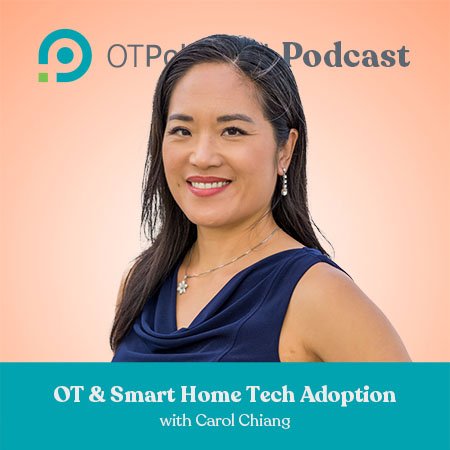
Carol Chiang OTR/L, CAPS, ECHM, CHAMP, is a home modification occupational therapist, realtor, and aging in place expert. Carol believes that the future of healthcare is in the home. Check out this podcast to hear more about home tech adoption.
Find fellow OTs in health tech
These occupational therapists have identified themselves as working or interested in health tech!
Conclusion
Phew! I wasn’t expecting this when I started, but this felt like one of the most important blogs I’ve written. I think the future winners and losers on these lists will have a huge impact on occupational therapy.
All I know is that I want OTs working at all of the companies mentioned above! I hope you consider clicking through to careers pages to see the opportunities available to therapists.
In the comments below, let me know what companies you would like to see here! I am already looking forward to my next update of this post!


6 replies on “Occupational Therapy Tech Tools (2025)”
oh my goodness, can we add to this? I know more!
Yes!! Of course! You can seriously just text me companies/categories I should add!
Yes, please add MotoPal to the list! Upcoming app for new drivers with ADHD.
HI! I work as the head of clinical experience for Reactiv. We combine virtual OT sessions, AR games, and exercising videos to treat people with joint pain. Would love to have this added!
Hi Hannah! I will get this added on Friday!!
Such an amazing resource. Thank-you.